 Petzlover
Petzlover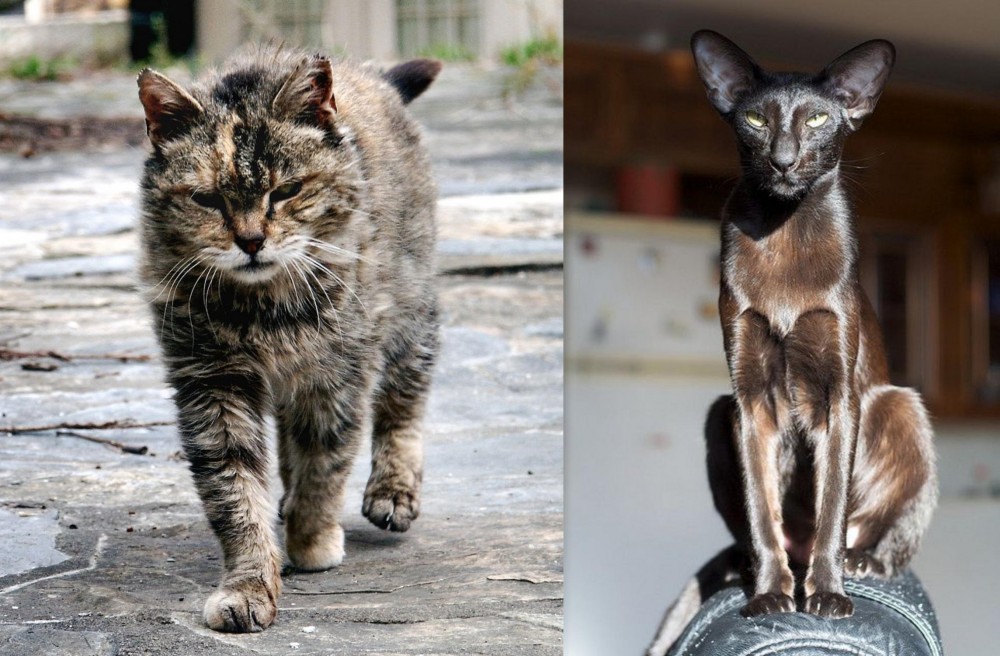 Farm Cat is originated from United States but Oriental Shorthair is originated from United Kingdom. Both Farm Cat and Oriental Shorthair are having almost same weight. Farm Cat may live 5 years more than Oriental Shorthair. Both Farm Cat and Oriental Shorthair has same litter size. Farm Cat requires Moderate Maintenance. But Oriental Shorthair requires Low Maintenance
Farm Cat is originated from United States but Oriental Shorthair is originated from United Kingdom. Both Farm Cat and Oriental Shorthair are having almost same weight. Farm Cat may live 5 years more than Oriental Shorthair. Both Farm Cat and Oriental Shorthair has same litter size. Farm Cat requires Moderate Maintenance. But Oriental Shorthair requires Low Maintenance
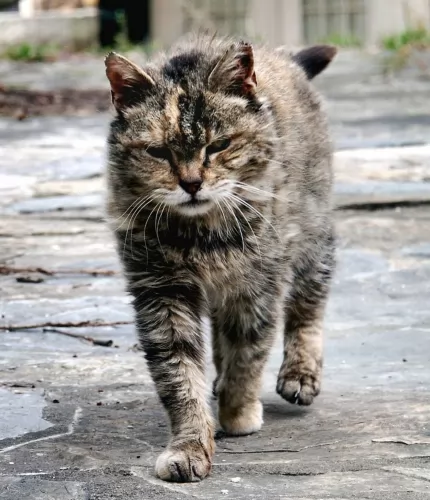 Known also as the Barn Cat, this domestic cat is of a mixed breed. The very name ‘farm cat’ is referring to a general kind of cat that lives in an almost wild state on farms and agricultural properties.
Known also as the Barn Cat, this domestic cat is of a mixed breed. The very name ‘farm cat’ is referring to a general kind of cat that lives in an almost wild state on farms and agricultural properties.
Possibly, their role in keeping rodents at bay was how they came about – domesticated to keep rodents away from grain crops.
When you do research you find that there is archeological evidence to suggests that these farm cats have been around since about 7500 BC. Most barn cats fall under the domestic shorthair or domestic longhair categories.
These cats live in a variety of conditions and some of them get their food solely from the rodents they catch. Others are tame with access to supplemental cat food as well as veterinary care.
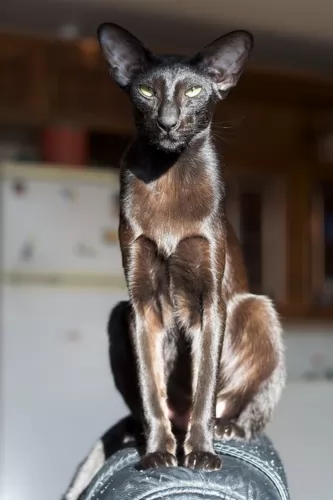 This domestic cat is also related to the Siamese Cat. Orientals come from a diverse group of cats, but they have their foundation in the Siamese breed.
This domestic cat is also related to the Siamese Cat. Orientals come from a diverse group of cats, but they have their foundation in the Siamese breed.
The cat was imported from Thailand to the UK during the 1800s. This particular cat was accepted as an actual breed in 1977. Quite a few of the top cat organizations recognize the Oriental Shorthair but as a Siamese.
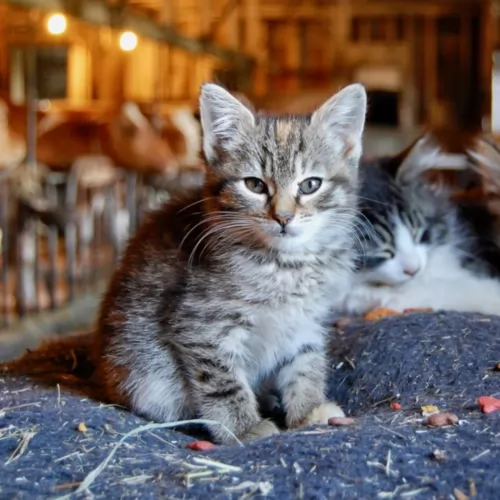 Farms cats are also members of domestic cats but it’s just that they are usually not socialized and they run away from people.
Farms cats are also members of domestic cats but it’s just that they are usually not socialized and they run away from people.
Farm cats have different histories and there is really no one-size-fits-all description of them.
They can weigh anything from 2 to 8kg. They can live to be anything between 10 and 20 years of age. Some of them are large, some small, some are solid colored while others are bi-colored and patterned. Their coats differ too and you can find short- and long-haired varieties among your farm cats
Their eyes and ears will also be in any shades and sizes and these cats are usually not spayed or neutered and can produce kittens that nobody is sure how they’ll turn out.
If you were to stumble across a farm cat born of unknown parents, there is no knowing what the small feline will behave like. Socialization and lifestyle play a big role in determining how a kitten will turn out but farm cats left to their own devices could be quiet, aggressive, loving, naughty, reticent, reserved, playful, lazy, shy or nervous.
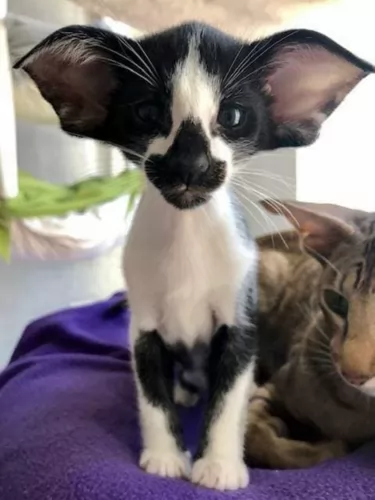 The Oriental Shorthair has a longish head with a slender neck and large ears. The legs are long and slender. The medium-sized cat weighs in the region of 3 – 5kg.
The Oriental Shorthair has a longish head with a slender neck and large ears. The legs are long and slender. The medium-sized cat weighs in the region of 3 – 5kg.
The eyes can be blue or green. Sometimes the cat will have one blue eye and one green eye. The coat is short and smooth and can be in a host of different colors.
The Oriental Shorthair is a curious, intelligent cat and they’re talkative too, loving to have conversations with their human family. They are cats that absolutely want to be part of the family. They don’t want to be left alone for too long either and get on well with children and pets in the home.
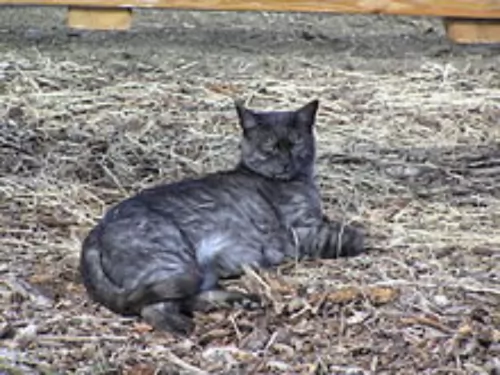 Farm cats are such wonderful animals – they just need a good chance in life like other domestic cats.
Farm cats are such wonderful animals – they just need a good chance in life like other domestic cats.
Many of them have had a hard life and it can be marvelous to open your home and heart to one or two of them and see the pleasure they bring.
They’re full of character and if you provide them with good food and a warm bed and promise to love them, you’ll no doubt be starting a solid and meaningful friendship that can enhance your life.
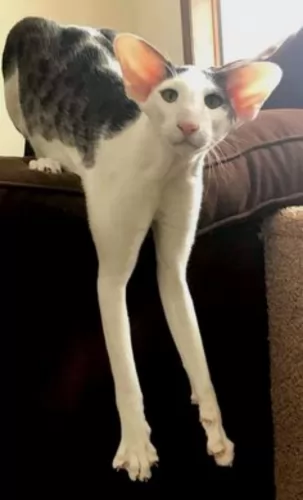 The Oriental Shorthair promises to be an active companion in your life. It’s a cat that likes to involve itself with all the activities that its human family takes part in.
The Oriental Shorthair promises to be an active companion in your life. It’s a cat that likes to involve itself with all the activities that its human family takes part in.
He is a great entertainer too, and he loves all the attention he gets, thriving on being the center of attention.
The Oriental Shorthair cat is slightly more quieter than the Siamese cat but he will still want to tell you what he’s doing and what he wants.
It’s a cat that has many many colors and shades, but the color extends to the cat’s personality. It has a colorful, interesting, inquisitive personality.
The cat is lively and social and will fit in best with a lively, active home where there are also animals to keep him company. By having this loving cat in your home and life, you bring in joy and happiness.
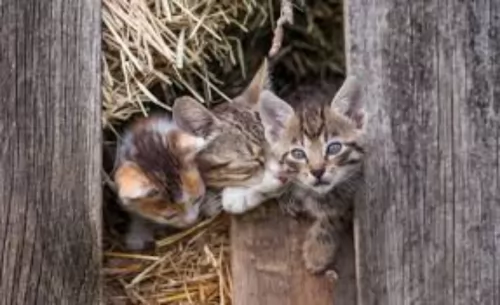 Farm cats left to fend for themselves can suffer from a host of illnesses. Eye infections are one. The cause of these eye infections is usually a virus, of which herpes, chlamydia, and Calicivirus are the most common.
Farm cats left to fend for themselves can suffer from a host of illnesses. Eye infections are one. The cause of these eye infections is usually a virus, of which herpes, chlamydia, and Calicivirus are the most common.
Your vet will certainly prescribe you some antibiotics for your kitten to help against secondary infections.
Check your farm kitten over as he is likely to have a nose full of snot as well and may even be sneezing. Take the kitten to the vet who can give him a good once-over and put him on the road to recovery.
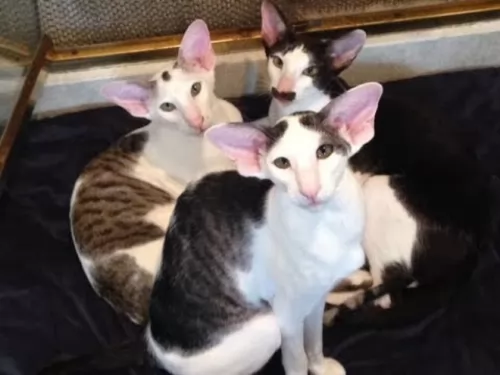 Oriental Shorthairs share some of the same health issues as Siamese cats. Make sure, if your cat shows signs of illness that you have pinpointed a vet in your area.
Oriental Shorthairs share some of the same health issues as Siamese cats. Make sure, if your cat shows signs of illness that you have pinpointed a vet in your area.
Things such as asthma, bronchial disease, lymphoma, neurological disorders, and gastrointestinal problems will need to be seen by the vet.
Think about having your cat spayed or neutered. Not only is this surgery important for preventing unwanted pregnancies, but it can also remove the urge for the cat to roam. The procedure has health benefits for your cat too.
Ensure that your Oriental shorthair has his vaccines up to date. These vaccines are important for preventing your cat from getting some deadly feline diseases. Kittens usually get the first vaccines between the ages of 6 and 8 weeks. Certainly, if you decide to go on holiday and you want to board your cat, the boarding kennels will require that the vet’s card and vaccines are 100% up to date.
Prevent parasites by using a treatment subscribed for your pet by the vet.
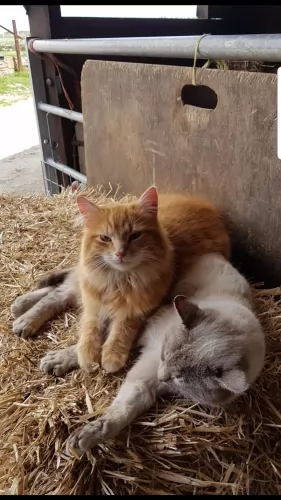 Barn cats or farm cats are not likely to have been neutered or spayed and they are just adding to the overpopulation of farm cats that can become feral cats.
Barn cats or farm cats are not likely to have been neutered or spayed and they are just adding to the overpopulation of farm cats that can become feral cats.
The average fertile cat can produce three litters every year, and with as many as 6 kittens in a litter, you can imagine how a small colony of cats can get out of control.
Sometimes cat rescue programs do a steri-drive and spay and neuter cats like this to curb the numbers. Of course, spaying and neutering can prevent many diseases as well.
If you have farm cats that have been spayed or neutered, provide them with good food and water. You can put out wet, canned cat food or dry kibble – they’ll be so pleased as most times these cats don’t even know where their next meal will come from.
You see them drinking out of puddles of water. Unfortunately, these pools are often filled with contaminants and this can also make the cats sick.
Every cat just wants a soft, warm place to sleep, and if you can, provide some warm dry hay for these farm cats. Even a cardboard box can be a haven for a cat that has never known a bed.
If you have managed to catch a farm cat kitten and you want to offer it a home, make sure to start off with veterinary care and vaccines.
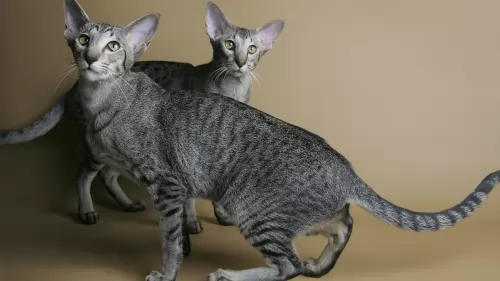 The short glossy coat doesn't shed much and the cat is considered low maintenance. A brush once a week will be adequate. A wipe down with a damp cloth will keep the cat dust-free and shiny.
The short glossy coat doesn't shed much and the cat is considered low maintenance. A brush once a week will be adequate. A wipe down with a damp cloth will keep the cat dust-free and shiny.
Just doing this for your cat is good for the cat’s morale as he thrives on attention, relishing the human interaction he gets during grooming.
Trim his nails, particularly if he is an indoor cat.
Keep your Oriental Shorthair lean and mean by not overfeeding him. The cat’s build is designed for slimness and he won't do at all well with the extra weight. The extra weight can lead to lots of health problems, one of which is diabetes.
If in any doubt as to how much to feed your cat, consult your vet about portion sizes. There are excellent commercially manufactured cat foods on the market, and the manufacturers know that cats are carnivores and that the best cat goods are high in protein.
Avoid giving your cat any kind of human food. Never leave him without a constant supply of fresh, cool water.
Provide your cat with a litter box and keep the box free of cat droppings. You can invest in small rakes from the pet shop and they make it easy to rake up the feces and dispose of them. Change the litter regularly too.